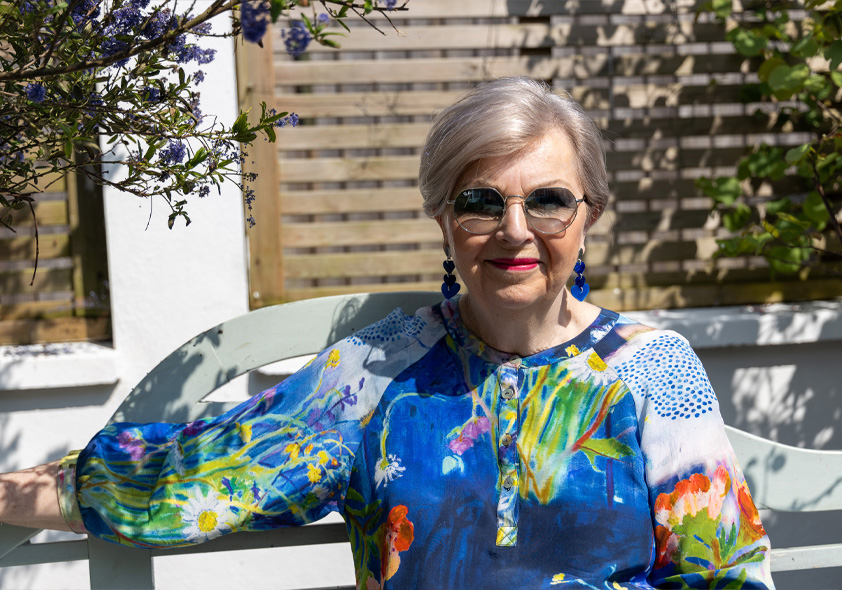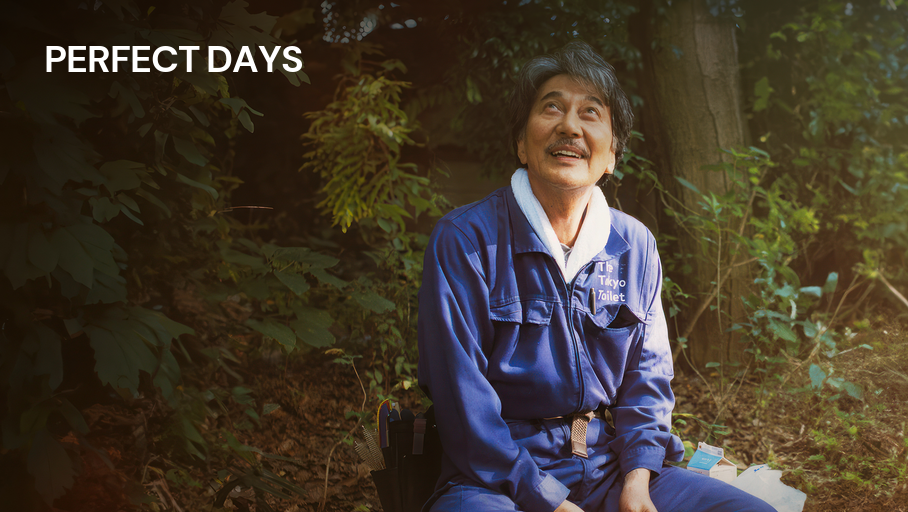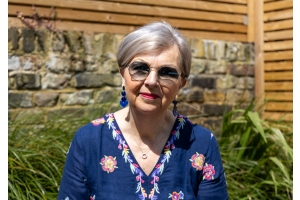
An amazing statistic for you: When I was 18 years old in 1965, the most common age of death was in the first year of life. Cleaner food and water, antibiotics and vaccinations have seen off the causes of early death, and now, just 60 years later, the most common age of death is 87. Think about that for a minute and you can understand it for what it is - our greatest achievement as human beings. Our generation has hugely benefited from that advance by knowing that our children and grandchildren were much less likely to die in infancy, and also by knowing that we have increased odds of living a very long life. And yet. And yet.
Rather than celebrating our longevity, we older people are made to feel guilty for the burdens that our continued lives are currently and will continue to impose on the rest of our society.
I find the framing of the issue of longevity fascinating because it is one of extremes. Depending on your viewpoint, living a long life is either a blessing or a curse both personally and for our society. If older age is synonymous with a kind of creeping decrepitude of mental and physical frailty requiring ever more support until you are, in Shakespeare’s words ‘sans eyes, sans teeth, sans everything’, then who would welcome it? And if, alongside that gradual decline, you are also made to feel guilty for the considerable demands that you and your generation are making on the NHS and state pension provision whilst hoarding all the wealth, then, again, who would celebrate all those candles on the cake?
However, what of the very real blessings that could and already do come with those extra years of life if only we started to approach the whole subject in a completely different way? I have been reading a new book by Andrew J. Scott of the London Business School called ‘The Longevity Imperative’*, which proposes a radical rethink of the ways that we structure and live our whole lives in order to prepare for the possibility of them lasting for eighty or ninety years. Scott has called it an ‘imperative’ because, as an economist, he sees its salience as similar or even more important than climate change in the challenges that it poses.
As you would imagine the model he proposes is very different from our current one of twenty-five years in education, thirty-five years in work followed by thirty five to forty years spent in retirement. And, bizarrely, the changes he proposes are quite close to the way that I have lived my life over the past 76 years, admittedly by accident rather than design, but it’s testament to the fact that a different pattern is both possible and enjoyable. The new world that Scott proposes creates both challenges and opportunities. At the moment we see old age as a period of low productivity (in terms of paid employment) and of increasing ill-health. Both individually and as a society we need to do much better and in ‘The Longevity Imperative’ Scott sets out his vision for a very different future.
The figures around ageing are compelling. In 1990 there were only 95,000 people over 100, now there are more than half a million and rising. Will they (we) enjoy a vigorous and healthy old age like the Okinawans in Japan who can count 35 supercentenarians (those over 110) for every million people when the average in Japan is just seven, which is itself the highest in the world? Scott offers us four different ways of ageing better, each offering different combinations of improvement in quantity and quality of life using cultural references which he takes from the world of literature and film: Jonathan Swift’s Struldlbruggs in Gulliver’s Travels, Oscar Wilde’s Dorian Gray, JM Barrie’s Peter Pan and the Marvel Comics’ antihero Wolverine.
Struldbruggs: Immortal but ageing eternally.
French philosopher Simone de Beauvoir called the description of the Struldbruggs in ‘Gulliver’s Travels’ “the cruellest portrait of old age that was ever drawn.” The Struldbruggs may live forever but their hair and teeth fall out, they go blind and at 80 are declared dead, even whilst they continue to live on enduring “all the follies and infirmities of old age”. They are not allowed to work, make decisions or own assets. As Scott says “viewed in modern demographic terms, this Struldbruggs scenario represents an improvement in how we age only in terms of mortality.”
In other words, we have a health system that has slowed the dying process rather than the ageing process. Swift’s satire underlines that if lives are long, we need to be supported by a healthcare system which teaches us from an early age how to live a very long and healthy life.
The Picture of Dorian Gray: The Cult of Youth
Dorian Gray, Wilde’s handsome young hedonist, makes a Faustian pact that a portrait he owns will age while he remains young and beautiful. Compared to the Struddlbrugg’s desolate immortality there is much to like about Dorian Gray with its focus on improving health to retain a youthful vigour as we age. Yet drawbacks remain. In his dialogue ‘On Old Age’, Cicero thought that a major advantage of becoming older was freedom from passions and sensual appetites. At the end, Dorian Gray realises that there’s more to life than the cult of youth, beauty and pleasure and destroys the painting and in so doing destroys himself. As Scott says “Extending health may be foundational for making a long life a good life but so is the accumulation of wisdom, experience and friendships.”
Peter Pan: Biology versus Chronology
The boy who never grew up, but what if there was a Peter Pan scenario in which you age biologically so that you live not just longer but in better health at every stage? This is about slowing down the rate at which your bodily functions deteriorate. We all know people who look years younger than they are and who have a biological age which is much younger than their chronological age. And most of us also know that the way to achieve this currently is via the right diet, lots of exercise, never smoking and limiting the amount of alcohol you consume. If we had health systems which, from an early age, were entirely focussed on preventing rather than curing the common diseases of old age, all of us could be more Peter Pan and less Struldbruggs. However both are immortal and as such deeply unappealing (at least to me!)
Wolverine: Endless Regeneration
The axolotl, an endangered species of Mexican salamander, regenerates its limbs, skin and most of its body parts, just as the fictional character Wolverine is able to do in the Marvel Comic franchise. I suppose you could draw a comparison with replacement hearts, livers, kidneys, hips, knees and shoulders which we can also get surgically when ours give up the ghost. Alongside the commonplace of these medical advances is the wonderful world of Geroscience which is often funded by billionaires in the USA to find ways to wind back the ageing process. So far they’ve had lots of success with mice, not so much with humans.
Health is just one consideration for positive ageing, albeit a vital one, but so is money. A world in which most are likely to live into their 90s, many even longer, needs to be thoroughly rethought in economic terms too. It is going to be necessary to work longer as a matter of course. Scott proposes that the three periods of education, work and retirement will need to be mixed up. People will need to repeatedly go back to study. They will need to take breaks, repeatedly. They will need to keep changing what they do in order to make longevity both affordable and, as important, endurable. As Scott says, this will require a complete rethink of education, work, pensions, welfare states and health systems. Just raising retirement ages all round is both inefficient and inequitable as life expectancy is so unevenly distributed. Pensions will need major reforms and health systems will need to incorporate public health if people are to age better. Less Struldbrugg and more Peter Pan without the neverending lives to which both are condemned.
As I was reading Scott’s book it occurred to me that my life had been lived according to his blueprint for a different way of doing education, work and not working, which has meant that I have been able to continue being economically active as I go further into older age with no fixed retirement date:
Birth to 21 yrs: Childhood and education. Qualified as a teacher.
21 to 26 yrs: Worked as a teacher
26 to 34 yrs: Stay at home mum to two girls born 1974 and 1978 (ran my own slimming club to earn a bit of extra money)
34 to 38 yrs: Back to university for 4 year BA Honours degree
38 to 48 yrs: Working full time in a large management training company
48 to 50 yrs: Studied for a Masters degree in adult education
48 to 64 yrs: Started and ran my own management consultancy business
64 to 65 yrs: One year off to help support my daughter’s family with my special granddaughter India
65 to 72 yrs: Started and ran Look Fabulous Forever, gradually building team
72 to 76 yrs: Still very involved in LFF, but on a more part-time basis
Of course, none of this was planned and, I acknowledge that I had a following wind and lots of luck along the way! But it does show that what Scott is suggesting in ‘The Longevity Imperative’ really isn’t pie in the sky. I know I’ve had a serious health scare recently, but happily it was just a scare and I am gradually feeling better and slimmer - but that’s a story for another day.
How do I see the future? Much as I have in the past to be honest. I will keep exercising, eating in a way that supports my ageing body, enjoying my family and friends, and staying open to learning new things (I’m off to Puglia next month for a week to learn Italian), and I’ll keep working with LFF for as long as they’ll have me because I enjoy every second of it!
Tricia x
*The Longevity Imperative - Building a Better Society for healthier, Longer Lives. Andrew J. Scott
Watch Our Latest Video...
Christine's Get Ready with Me & Outfit Inspiration
Christine takes you through her everyday skincare and makeup routine and shares her outfit inspiration for the season...
Upcoming Events:
Friday 31st May


Film Club: Perfect Days
Available on Amazon Prime
Watch the film beforehand and join us for a group discussion!
Day: Friday 31st May 2024
Time: 4 pm
Link: https://us02web.zoom.us/j/86109288705?pwd=TUgzQW5IK0VnUGI2MGdtb0FQN3hxZz09
Meeting ID (if needed): 861 0928 8705
Password (if needed): LOOKFAB













